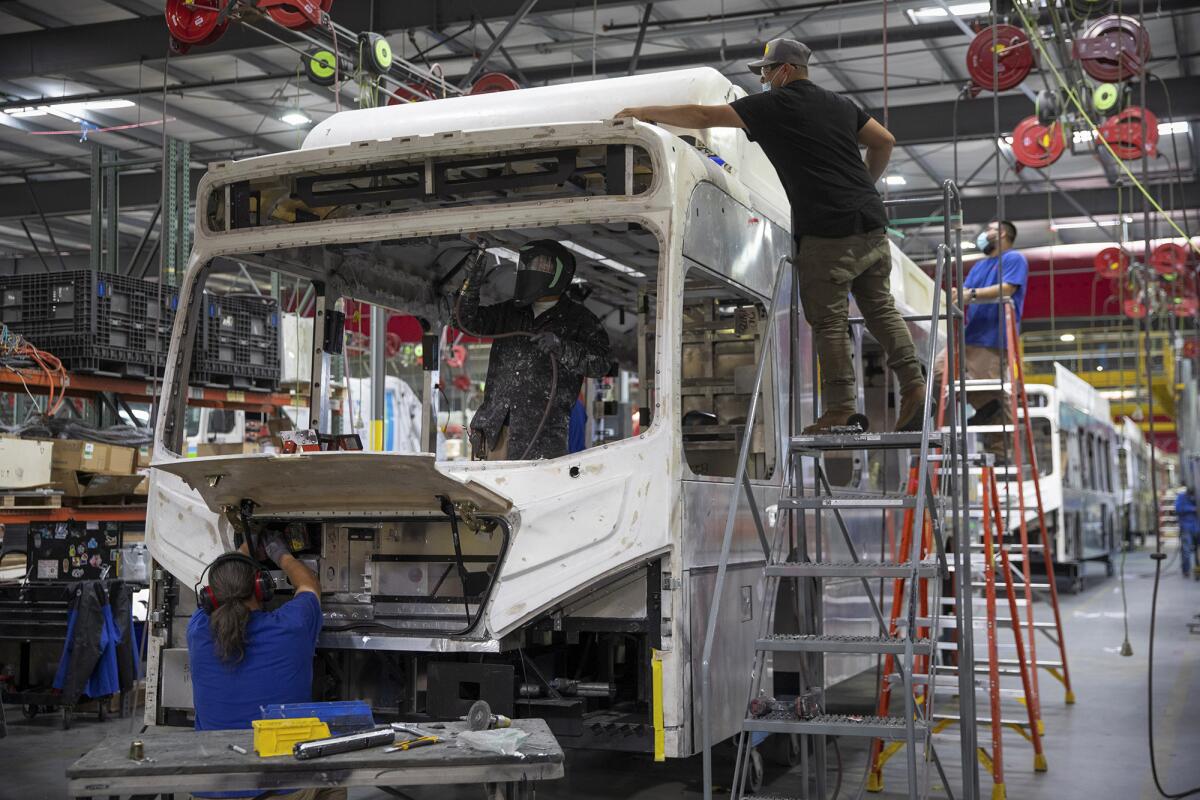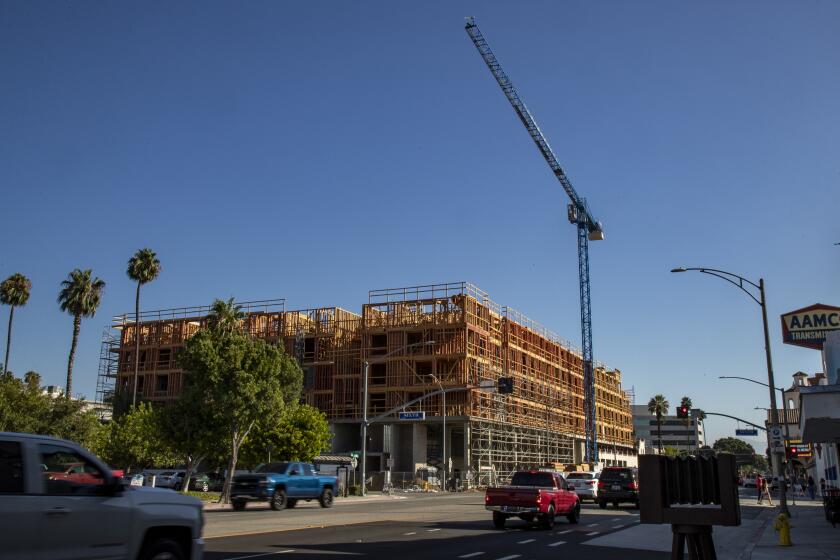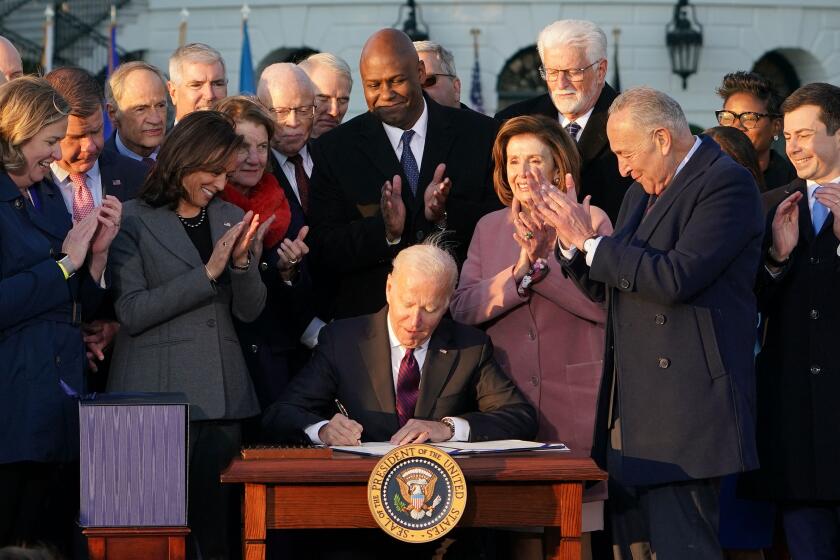Editorial: Taxpayer money can build transit projects — and a stronger middle class. L.A. Metro shows how

- Share via
When President Biden signed the $1.2-trillion infrastructure bill last year, he called it “the ultimate blue-collar blueprint to rebuild America,” because the funding package would create many good-paying jobs that do not require a college degree.
Now the Los Angeles County Metropolitan Transportation Authority is slated to adopt a policy to ensure that local and federal dollars invested actually deliver those quality blue-collar jobs. The manufacturing careers policy will require that companies building the agency’s buses and rail cars pay good wages and provide workforce training or apprenticeships, and ensure at least 10% of workers are considered “disadvantaged,” including those on public assistance, veterans, people with felony records and young people leaving foster care.
The goal is to make taxpayer dollars do two jobs — build much-needed transportation infrastructure and create career opportunities for people who have struggled to find work. Metro’s manufacturing careers policy will be the most comprehensive program of its kind in the country, advocates say. And it’s a model for how public agencies can prod private industry to create higher-quality jobs.
Assembly Bill 2011 would transform strip malls into housing and pay union-level wages to construction workers. Sounds like a win-win.
That’s especially important now. With passage of the infrastructure law, the Inflation Reduction Act and the CHIPS and Science Act, the federal government will spend almost $2 trillion over the next several years to kick-start semiconductor manufacturing, renewable energy development and the transition to zero-emission vehicles, which will create permanent jobs. But public agencies have to make sure disadvantaged workers get a shot at those jobs and career pathways.
Over the last decade Metro has incentivized contractors to hire and train disadvantaged workers, and several bus and rail car manufacturers have done so. Under the new policy, it’s no longer voluntary. Any company bidding for a manufacturing contract worth more than $50 million — which is most of them — must include hiring, pay and training commitments. And Metro will now have the staff to audit and enforce the contract promises, which has been a problem in the past.
Earlier this year, Metro and the worker advocacy organization Jobs to Move America settled a lawsuit filed against New Flyer, one of the nation’s largest bus manufacturers, alleging the company misstated the compensation it was providing workers building buses for Metro at its California and Alabama factories. The company admitted no wrongdoing but agreed to a settlement that includes more workforce training programs and increased hiring of disadvantaged workers. It was a lesson learned for Metro, and the new policy includes clearly defined reporting requirements and penalties for contractors that fail to fulfill their promises.
For the $1 trillion-dollar-infrastructure spending package to be successful, it should be seen as the beginning of American reinvestment, not the end.
There’s a lot of money and jobs at stake. Metro has committed to phasing out 2,000 compressed-natural-gas buses by 2030 and replacing them with zero-emission vehicles. It’s a $2-billion investment that will create a lot of work for bus manufacturers. The agency is also planning to buy 182 rail cars for the regional connector subway opening next year and the Purple Line extension, which will open in phases starting in 2024. Those contracts will be covered by the new policy, which is expected to be adopted by the agency’s Board of Directors on Thursday.
Taxpayers’ money should deliver the most good. We can build new transportation projects and propel entry-level workers into solid middle-class careers. Good for Metro for leading the way.
More to Read
A cure for the common opinion
Get thought-provoking perspectives with our weekly newsletter.
You may occasionally receive promotional content from the Los Angeles Times.












